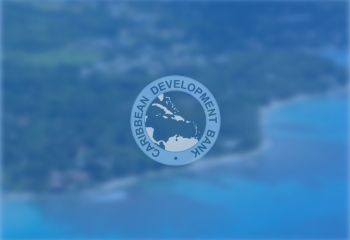Jamaica's Trinityville Disaster Risk Reduction Plans Shift into High Gear
The Trinityville Area Development Committee Benevolent Society (TADCBS) in Jamaica is set to kick off execution of its two-year Integrated Land Management and Disaster Risk Reduction Project, following the successful conclusion of a three-day Project Implementation Planning (PIP) workshop hosted by the Caribbean Development Bank (CDB).
The TADCBS project is one of the two initial projects receiving financing through the Community Disaster Risk Reduction Fund (CDRRF). CDRRF was established by CDB with grant financing from the Department of Foreign Affairs, Trade and Development, Canada and the Department for International Development, United Kingdom. The Fund finances community-based disaster risk reduction and climate change adaptation initiatives at the local level across eligible borrowing member countries of CDB.
McDonald Thomas, Project Manager, CDRRF, CDB noted, "The aim of the PIP workshop was to clarify and validate the project's design as outlined in TADCBS' Project Application Document, while ensuring that all operational, human and financial arrangements were in place. Over the three-day period we were able to harmonise the roles of all stakeholders and agree on how to proceed."
Representatives from CDB's legal, procurement, finance, monitoring and evaluation, and knowledge management portfolios were on hand to work with community representatives and partners. Participants were exposed to project management concepts and processes, practical applications of a results-based management tool and educated on CDB's procurement and disbursement procedures, and the Bank's values regarding governance, transparency and accountability. Discussions were also conducted on the legal structures and relations within the project, and the framework for capturing lessons learnt and best practices to aid in knowledge management.
Thomas stated that overall, the project is expected to reduce the physical and socio-economic vulnerabilities to natural hazards of the 12 targeted communities forming the Trinityville Development Area in St. Thomas. "Over 80 per cent of storms have entered Jamaica from the parish of St. Thomas. We estimate that approximately 6,000 residents will benefit directly and indirectly from the USD640,696 project grant. The grant will support numerous activities including rehabilitation of the Danvers Pen emergency shelter and drainage infrastructure in the Development Area. Additionally, upwards of 23,000 forest and fruit trees will be planted to aid land stability and livelihoods. Community members will also receive theoretical and practical training on conducting appraisals of disaster risks and the development of community emergency management plans."
The initiative has been endorsed widely at the parish level. Numerous State agencies and departments including the St. Thomas Parish Council, National Works Agency and the Social Development Commission have come on board. Joining too are the Rural Agricultural Development Authority, Office of Disaster Preparedness and Emergency Management, along with the Forestry Department which will provide technical, social and auxiliary support during the two-year implementation.
CAPTION: McDonald Thomas, Interim Project Manager, CDRRF, CDB (left) highlights the purpose and expected outputs of the Project Implementation Planning workshop
CAPTION: Douglas Fraser, Head of Procurement, CDB outlines procurement procedures and policies. At right is CDB Legal Counsel, Alana Goodman Smith
CAPTION: CDB Monitoring and Evaluation (M&E) Specialist, Rolene Guilland (left) expands upon the M&E concepts discussed


